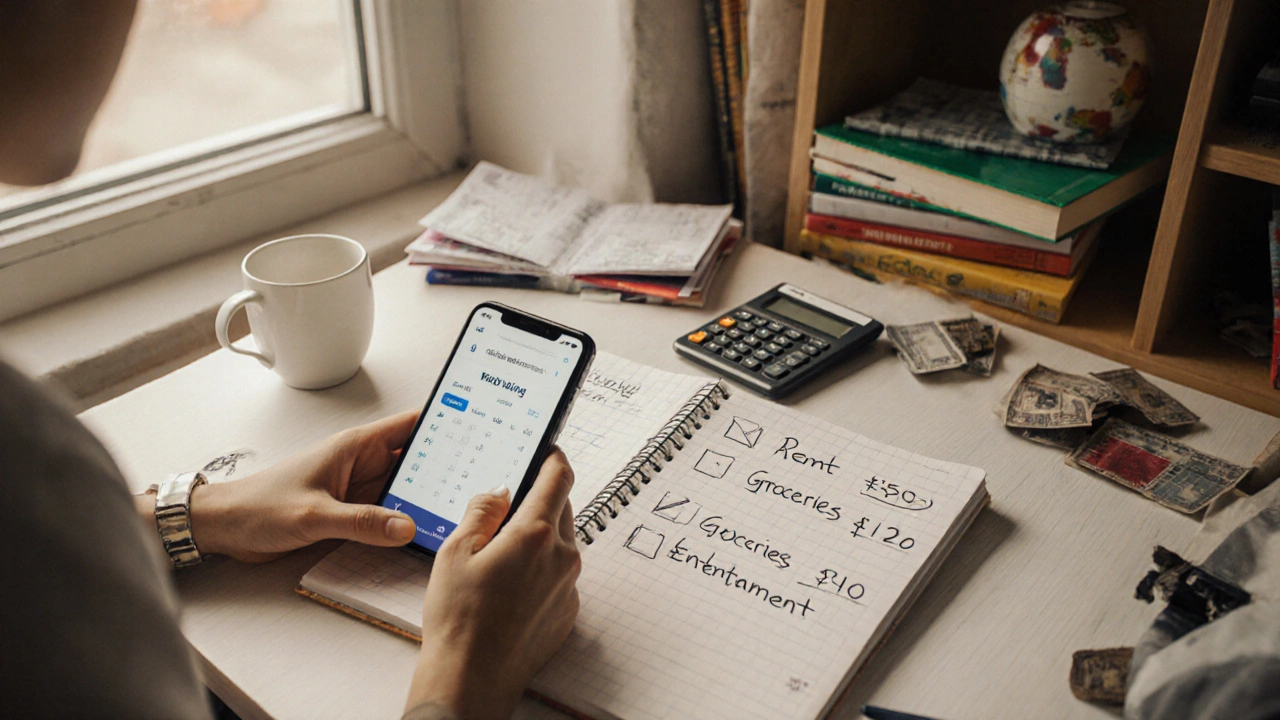Zero-Based Budgeting for UK Students: How to Start from Scratch and Stick to It
When you hear zero-based budgeting, a budgeting method where every pound of income is assigned a specific purpose, leaving no money unaccounted for at the end of the month. Also known as zero-sum budgeting, it’s not about cutting back—it’s about choosing where your money goes instead of wondering where it disappeared. Most students think budgeting means tracking spending. Zero-based budgeting flips that. It’s about planning ahead so your rent, groceries, bus fare, and even that £5 coffee have a spot in your plan before you even see your student loan hit your account.
This method works because it forces you to be intentional. If your income is £1,200 a month, you don’t just say "I’ll save what’s left." You say: £600 for rent, £200 for food, £80 for transport, £50 for phone, £100 for fun, £170 for savings. Every pound has a job. No leftovers. No guesswork. And when you actually do this, you stop feeling broke even when you have money in the bank. You start feeling in control. It’s not magic—it’s just clarity. And it pairs perfectly with tools like Monzo, a banking app popular with UK students for real-time spending alerts and easy budget categories or Starling, another student-friendly app that lets you set up automated savings goals and track spending by category. These apps don’t do the work for you, but they make it easy to see if your budget is still holding up—or if you’ve slipped into old habits.
What’s great about zero-based budgeting for students is that it adapts. Your budget in October won’t look like your budget in February. Maybe you get a part-time job. Maybe your rent goes up. Maybe you need new textbooks. Zero-based budgeting doesn’t punish you for change—it expects it. You just reassign the pounds. And because it’s so visual, you can spot problems fast. Like when you realize you’re spending £120 a month on takeaways but only saving £10. That’s not a bad habit—it’s a budgeting mistake. And it’s fixable.
You’ll find posts here that show how to set up direct debits so your rent and bills are covered before you even think about spending. Others explain how to use apps like Monzo and Starling to make budgeting automatic. There’s even one on how to survive without alcohol and still socialise—because fun doesn’t have to cost £20 a night. This isn’t about being poor. It’s about being smart with what you’ve got. And if you’ve ever felt like your money vanishes by week two, this collection is your reset button.
Published on Oct 21
0 Comments
Zero-based budgeting helps UK students take control of their finances by assigning every pound a purpose. Learn how to plan your loan, part-time income, and expenses with this simple, proven method.
